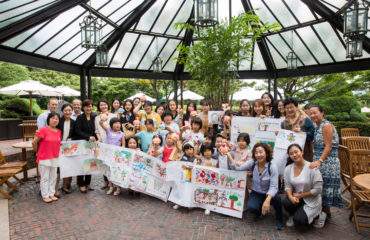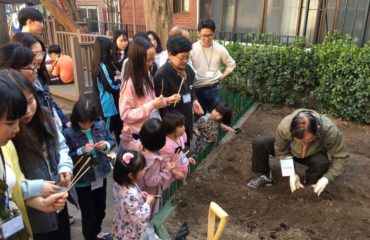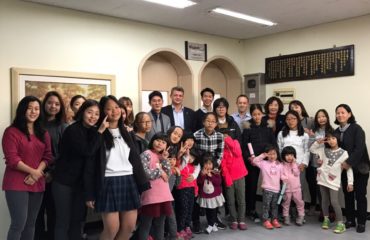Former Kiwi Chamber Chairman Lewis Patterson continuing to strengthen
the New Zealand-Korea relationship
When you think of words like sustainability, charity and connecting businesses, long-
standing expatriate Lewis Patterson comes to mind. From his dedication to
strengthening the local business community through connecting enterprise, enthusiasm
for introducing sustainable packaging in Korea and his commitment to the greater
community through developing the Kiwi Chamber’s relationship with the Songjukwon
Girl’s Residence – an initiative which has raised money and opportunity for the girls –
Lewis is a Kiwi who punches well above his weight.
In 2010, Lewis founded the successful Latitude Inc., a company that provides market-
entry assistance to mainly New Zealand firms looking to do business here. More
recently, he took up the role of Country Manager of Sustainable Brands (SB) Seoul, an
organization which hosts an annual conference and workshops on sustainable
packaging innovation, bringing some of the world’s leading experts to Korea to share
their knowledge.
Over the years, Lewis has also played a significant role in the Kiwi Chamber as advisor,
board director and sponsor. As chamber chairman in 2013 and 2014, he played an
instrumental role during the critical New Zealand-Korea Free Trade Agreement (FTA)
negotiations and hosted former Prime Minister John Key during one of his visits to Korea.

In recognition of all his efforts and successes in Korea, Lewis was recommended by the
New Zealand Embassy in Seoul as an ‘Honorary Citizen of Seoul City,’ an honor given
to individuals who make significant contribution to business, charity, education and
other fields. “Mr. Patterson is truly a worthy recipient of the honorary citizenship – and the Kiwi
Chamber and New Zealand business community are proud of his achievements,” said
Dr. Tony Garrett, Chairman of the Kiwi Chamber. “He is fundamentally a selfless person
who strongly believes in making his community a better place. He is a shining example
of the New Zealand- Korea relationship!”

As part of its Inspire with Innovation Series, the Kiwi Chamber caught up with Lewis to
discuss his journey of success.
Please tell us about the history and vision behind Latitude and its operations in
Korea.
“Back in the day, I was a branch manager of a New Zealand company based out of a
small office in the middle of Seoul’s traditional oriental medicine market.
“A passion for Korea combined with the spice added by texted death threats promising I
would find myself at the bottom of the Han River should I not back off on chasing a bad
debt and office conditions that ensured I felt the full force of brutal winters and blistering
summers provided me with the spark that cemented my vision for Latitude.
“That is, a company that would represent businesses in Korea on their terms, and in a
much more effective manner that fostered mutual respect and even friendship while
adding value to both the supplier and end user.
“Ultimately, that vision evolved to express more strongly my own social and
environmental purpose based on what I had seen in Korea and elsewhere in the world,
and the clearly unsustainable manner in which we did business.”
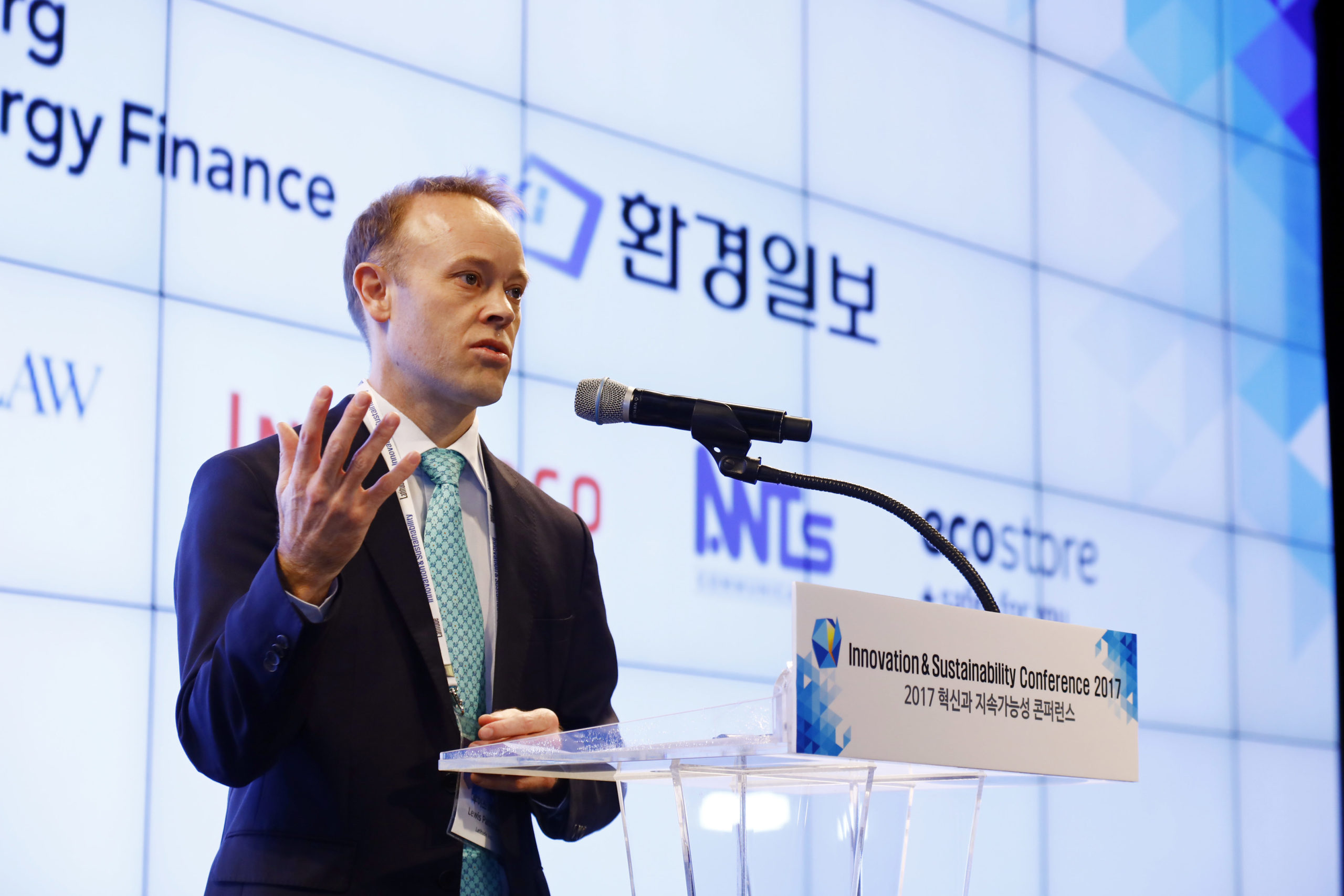
You reside in New Zealand and work with your team in Korea. How do you stay involved?
“Korea will always be my second home so I can’t help but stay in touch on a personal
and profession level. That the Latitude team are as much friends as work colleagues
makes this even easier.
“In addition, I have recently taken up a role as External Director for Yuhan Care, a fully
owned subsidiary of Yuhan Corporation. They are looking to build a purpose driven
business with a strong sustainability focus.
“Over the last eight months, I have also been working with Zespri to define its
sustainable packaging programme based out of Tauranga, New Zealand. As this is full
time-plus role, I am much less hands-on with the day-to-day Korean work and more
focused on key strategic projects which focus on sustainability leaders in Korea that will
build bilateral collaboration and fast-track sustainable innovation.”
What services does Latitude provide its customers? What differentiates Latitude
from others?
“Trust and positive change. We literally become part of the team of whomever we
represent. We don’t consult, which means we enjoy a level of trust that I have not seen
with any other companies I have either worked with or engaged with.
“At Latitude, we develop and drive sustainable innovations in the key markets we play
–Korea and New Zealand. We do this through a unique approach that combines
practical business development and promotion expertise with a focused platform for
collaboration – like with Sustainable Brands (SB) Seoul.
“As mentioned, the key success factor is trust. We see ourselves as employees of the
companies we represent and behave as if the businesses we represent are our own.
“We also operate outside the square, tackling objectives and challenges differently
which ensures promotions we work on stand out and deliver much better return on
investment. This approach has also cemented year-on-year collaborations between
the brands we represent and their Korea partners.
“Another key success factor is that we put skin in the game. We have invested
considerable resources and money into sustainable projects we believe in, building
further on the trust we enjoy and our knowledge base and expertise.
“Finally, there is an extra special link for all the Latitude team between New Zealand
and Korea – with all of us spending time split between the two countries and calling both
home. Thus, our closest connections, and hence focus, has lain with this bilateral
relationship.”
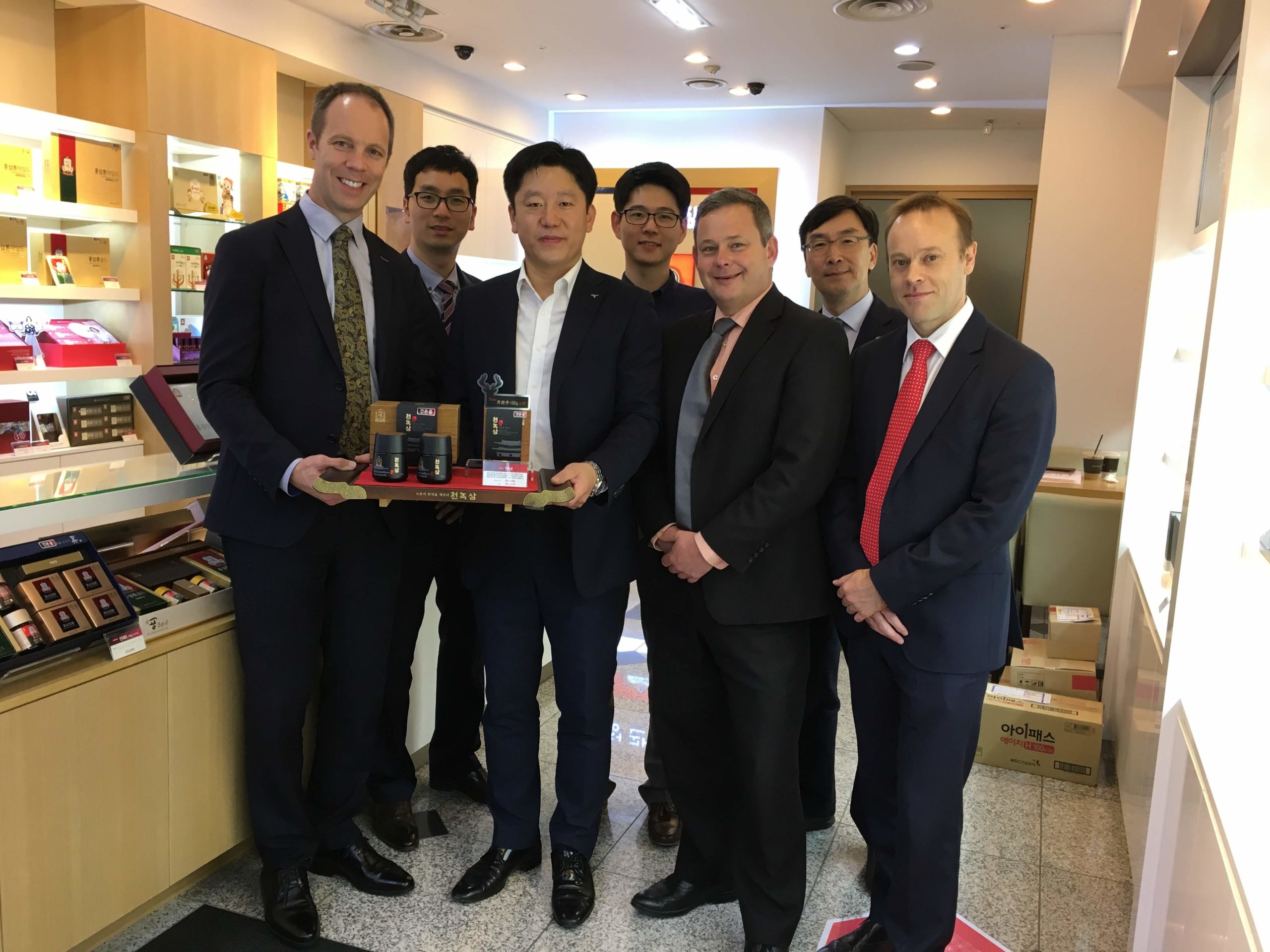
I understand that you also represent Sustainable Brands (SB) in Korea. Please tell
us about SB, its mission and objectives and some of the events you have
organized. Is sustainable business across industries and products types
beginning to take root in Korea?
“Over the last six to seven years we have invested over USD 1.5 million into sustainable projects – a significant outlay for a small business such as ours. These projects included closed loop waste solutions for events, market research and strategic company introductions.
“However, recognizing that broader collaboration was essential if change at scale was to eventuate – we launched our Innovation & Sustainability series in 2016.
“While ahead of the curve for Korea in terms of the sustainability agenda, we were behind the curve in understanding the value proposition for Korean companies. This cost us a lot and we failed to secure sufficient support from Korean corporates during the early stages.
“Two years into this we came across the work SB was doing on a global scale which mapped with our vision for Innovation & Sustainability. SB linked like-minded brands and individuals together on a global scale, providing a genuine platform for change. Inspirational programmes such as LOOP – a circular shopping platform launched by TerraCycle that replaces single-use disposable packaging with durable, reusable packaging – among many others were able to flourish thanks to the SB platform. Through the vision of KoAnn Skrzyniarz, its founder, SB have consistently delivered inspiration at the individual, start-up and corporate level, and our hope is that Korea will quickly catch up in this space.”

This has been a challenging year due to Covid-19. What impact has the pandemic
had on Latitude and on SB?
“COVID-19 has had an impact. We had locked in the CEO Sustainable Leaders Forum
for April this year in NZ which was to host a number of very influential corporate leaders
from Korea including the Chairman of the Board of LG Chem, President of GS Caltex,
the Executive Secretary of the Korea Business Council for Sustainable Development,
and many more. With no physical meetings in NZ we lost a lot of investment, however
collaboration continues and thanks to support from North Asia CAPE some exciting
bilateral work is still under way.
“SB Seoul, an annual event, was also planned on a large scale, following up on two
very impactful years. This too has been adapted to focus on membership and targeted
support through the ‘Brand Transformation Roadmap’ and Innovation Labs. The value
of the SB platform is that it enables brands to engage on a global level on topics of key
concern and allows engagement and tangible collaboration to follow.
“Ironically, the current COVID world has highlighted the need for representation you can
trust on the ground. This has led to additional work for our Seoul team given we
genuinely act as employees of the companies we represent – not as consultants.”
You have been a long-time supporter of The Kiwi Chamber. What connects you to
the chamber and what roles you have undertaken both past and present?
“I started as director of the Kiwi Chamber many years back and served as the chairman
for two years. Currently I remain an advisor and am very passionate and focused on the
great work we kicked off when I was chairman in conjunction with ANZ Bank to support
the Songjukwon Residence.
“This is certainly a highlight of my work with the Chamber. Walking into Songjukwon and
seeing how the students supported each other like one big family was inspiring.
Knowing that we could help these students make the most of their strengths when they
left the support centre was an inspiration for all of us. Along with building a library and
study space, seeing four students visit NZ via our scholarship programme and make the
most of their time has been exciting and I trust that post-COVID this great work will
continue to grow and all the students of Songjukwon will benefit. New Zealand will also
benefit from the inspiration those students bring and enhanced bilateral connections.
“The other highlight has been working together with other chamber volunteers – some of
the hardest working, dedicated and most genuine people. This also goes for my team in
Seoul – all great people.”

Lewis Patterson has lived and worked in Korea for over 14 years and relocated back to
New Zealand in 2018 with his wife and two children to focus on the Kiwi side of things.
In closing, he offers a message of hope, “Korea absolutely has the potential and indeed
a responsibility to be a world leader in sustainable solutions if we are to change quickly
enough to avoid a downward environmental spiral we can’t reverse. We will continue to
invest in Korea, and I trust the interest shown by large and small businesses in our work
will continue to grow.”
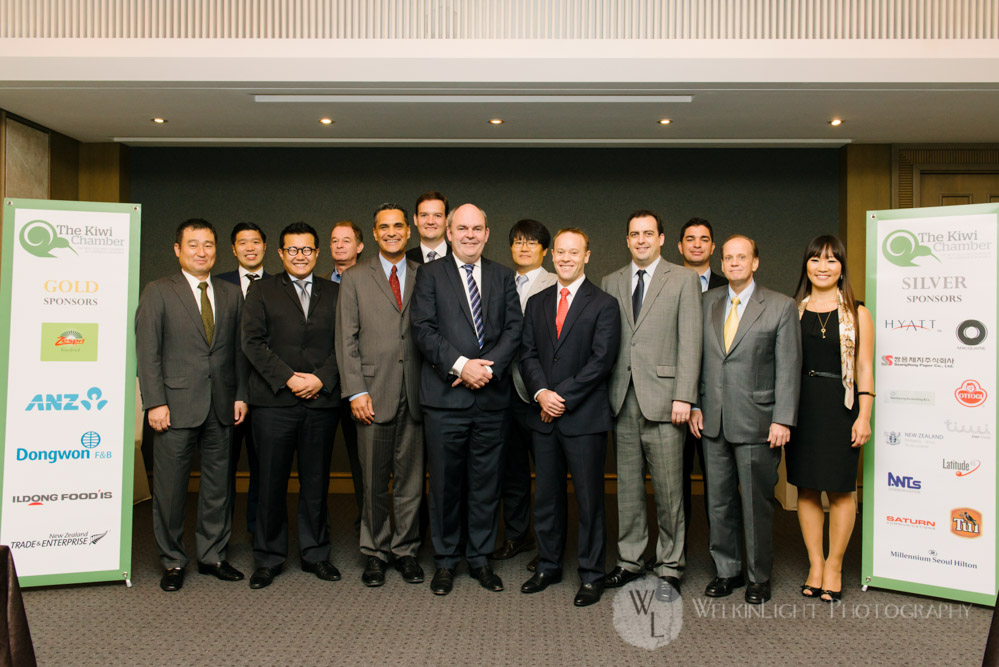
Tony Garrett summed it all up, “Mr. Patterson has been at the forefront of providing
meaningful opportunities for Koreans and New Zealanders to connect through
commercial, cultural and community ties.He is an individual whom I respect and credit
for helping to build and enrich the strong relationship between Korea and New Zealand.”


